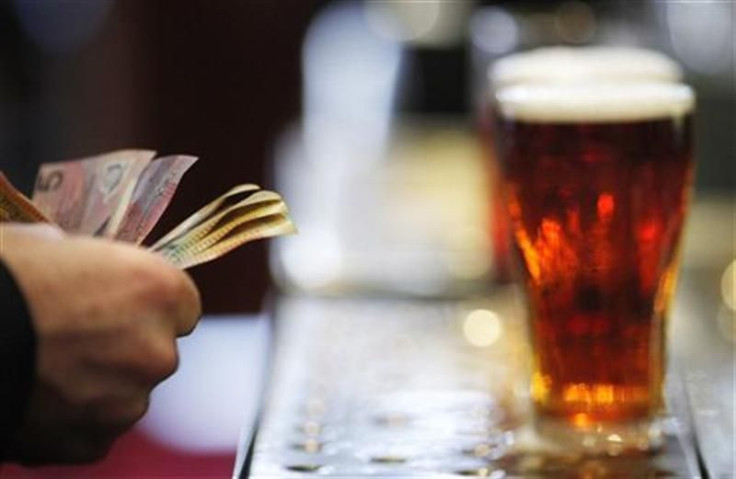Brain Study Reveals Just A Taste Of Beer Can Trigger Alcohol Cravings

A new study of the human brain suggests that the taste of beer alone may be enough to trigger intense pleasure and craving for more alcohol. For men with a family history of alcoholism, the link between was even stronger.
In the study, led by Indiana University School of Medicine neuroscientist David Kareken and colleagues and recently published in the journal Neuropsychopharmacology, scientists gathered 49 male volunteers with drinking habits ranging from social drinkers to alcoholics. Researchers then gave them half an ounce of their favorite beer, enough to give them a taste, but not to affect their blood alcohol level in any way.
After that, scientists scanned the men’s brains with Positron Emission Tomography, creating a 3D map of their brains. Kareken and his team found that simply the taste of beer triggered a large release of dopamine in the brain. Dopamine, a chemical responsible for creating feelings of pleasure in the brain, has long been associated with substances like alcohol.
Kareken’s team tested the beer against a control substance of Gatorade and found that the beer caused a significantly larger spike in the brain. Subjects who drank beer also reported wanting more beer soon after they drank their small amount, even though it did not intoxicate them.
“Relative to the control flavor of Gatorade, beer flavor significantly increased self-reported desire to drink,” the study reads.
To put it in simpler terms: just the taste of alcohol was enough to make these men happy and craving more.
"We believe this is the first experiment in humans to show that the taste of an alcoholic drink alone, without any intoxicating effect from the alcohol, can elicit this dopamine activity in the brain's reward centers," Kareken told LiveScience in an interview.
The study also found that several of the men with family histories of alcoholism saw an even greater spike of dopamine.
“The response is strongest in subjects with a greater genetic risk for alcoholism,” the study reads.
This could lead scientists toward a better understanding of the science behind alcoholism. If the taste of alcohol coincides with a stronger release of dopamine among alcoholics, it could go a long way in explaining why they find alcohol so pleasurable and addictive.
© Copyright IBTimes 2024. All rights reserved.






















